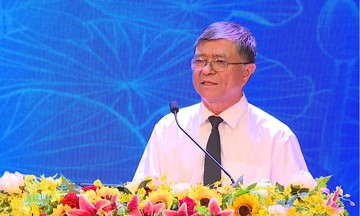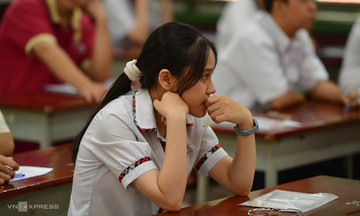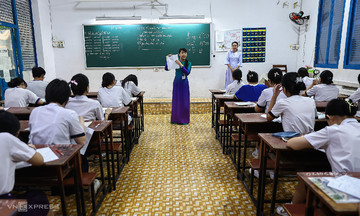With one day left before the high school graduation exams, localities across Vietnam have finalized preparations. Hanoi, with the highest number of examinees at over 124,000, has set up over 230 exam centers and mobilized approximately 20,000 personnel.
All exam centers confirmed their readiness in terms of facilities and other conditions 5 days ago. To prevent students from going to the wrong exam center, as has happened in previous years, the Hanoi Department of Education and Training developed a digital map to help students locate their designated locations.
Ho Chi Minh City, with nearly 99,600 examinees, has also completed its preparations. Surveillance camera systems at exam paper storage and grading rooms are ensured to operate continuously, even during power outages.
With forecasts of heavy rain, potential flooding, and thunderstorms during the exam period, Ho Chi Minh City has reviewed and reinforced facilities at all exam centers. Contingency plans are in place for relocating materials and equipment in case of incidents.
In Can Gio district, the Binh Khanh ferry will increase its operating frequency during peak hours. Students from Thanh An island commune will be provided with accommodation and bus transportation to the exam center.
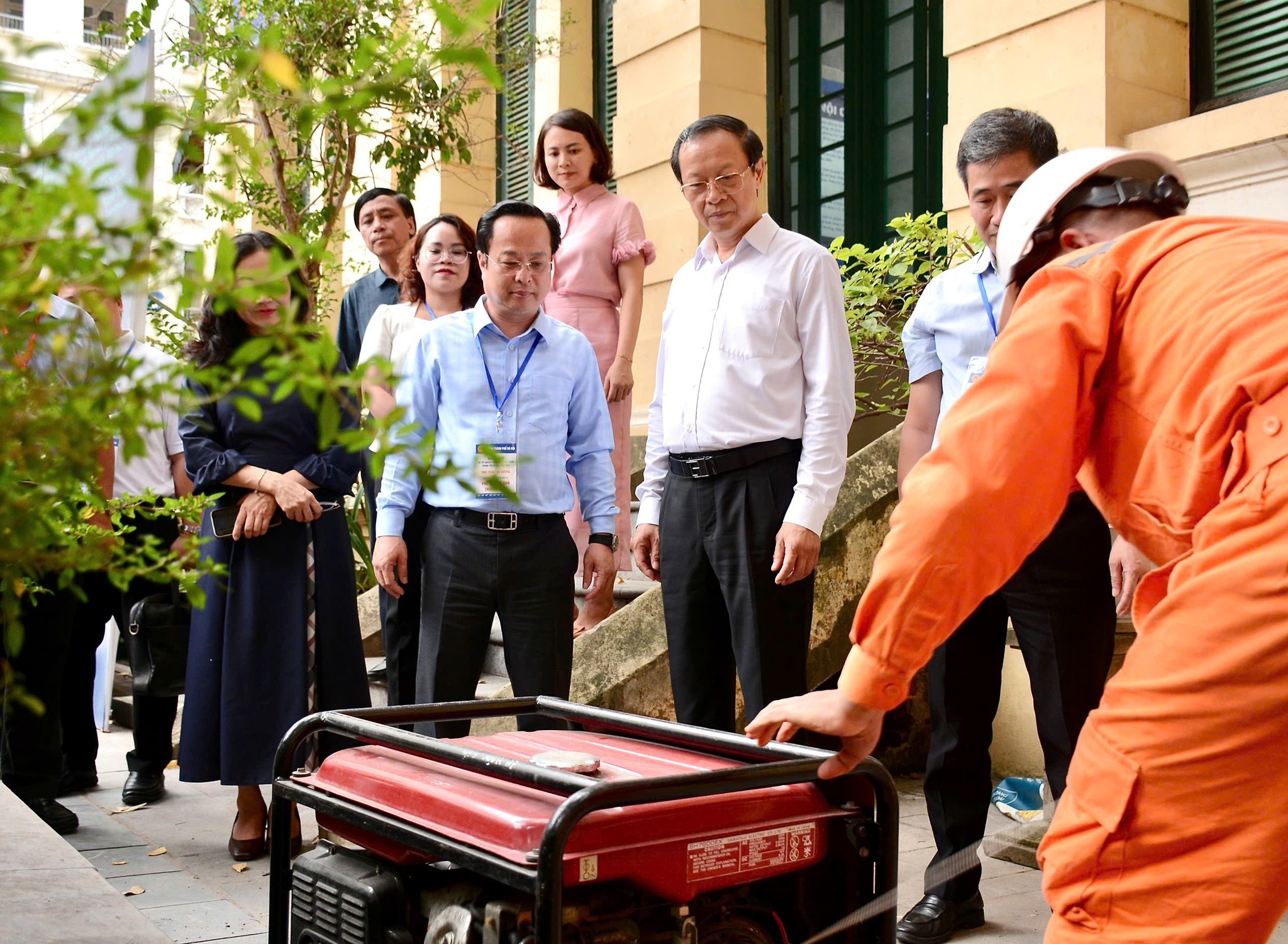 |
Deputy Minister of Education and Training Pham Ngoc Thuong (in white, wearing glasses) inspects preparations in Hanoi on 20/6. Photo: MOET |
Deputy Minister of Education and Training Pham Ngoc Thuong (in white, wearing glasses) inspects preparations in Hanoi on 20/6. Photo: MOET
In Lao Cai, over 9,200 students will sit for the exams. Scattered thunderstorms and the risk of lightning strikes and localized power outages are forecast for the next two days. Therefore, ensuring power supply to the exam centers is a top priority. Each center is equipped with 1-2 backup generators.
As a mountainous province with many ethnic minority students living far from exam centers, districts and towns have been instructed to arrange accommodations for students closer to the centers in case of inclement weather, ensuring no student has to travel between exam sessions.
For students staying in rented accommodations, schools have compiled detailed lists of their residential addresses, phone numbers of students, parents, and landlords to facilitate assistance if needed.
Many other provinces, including Ha Giang, Phu Tho, Thanh Hoa, Nghe An, Binh Thuan, and Dak Lak, have implemented similar preparations to ensure that no student misses the exam due to weather or travel difficulties.
Yesterday in Kien Giang, over 140 students from several communes in Kien Hai district traveled by sea to Rach Gia city for the exams, with police escorts provided.
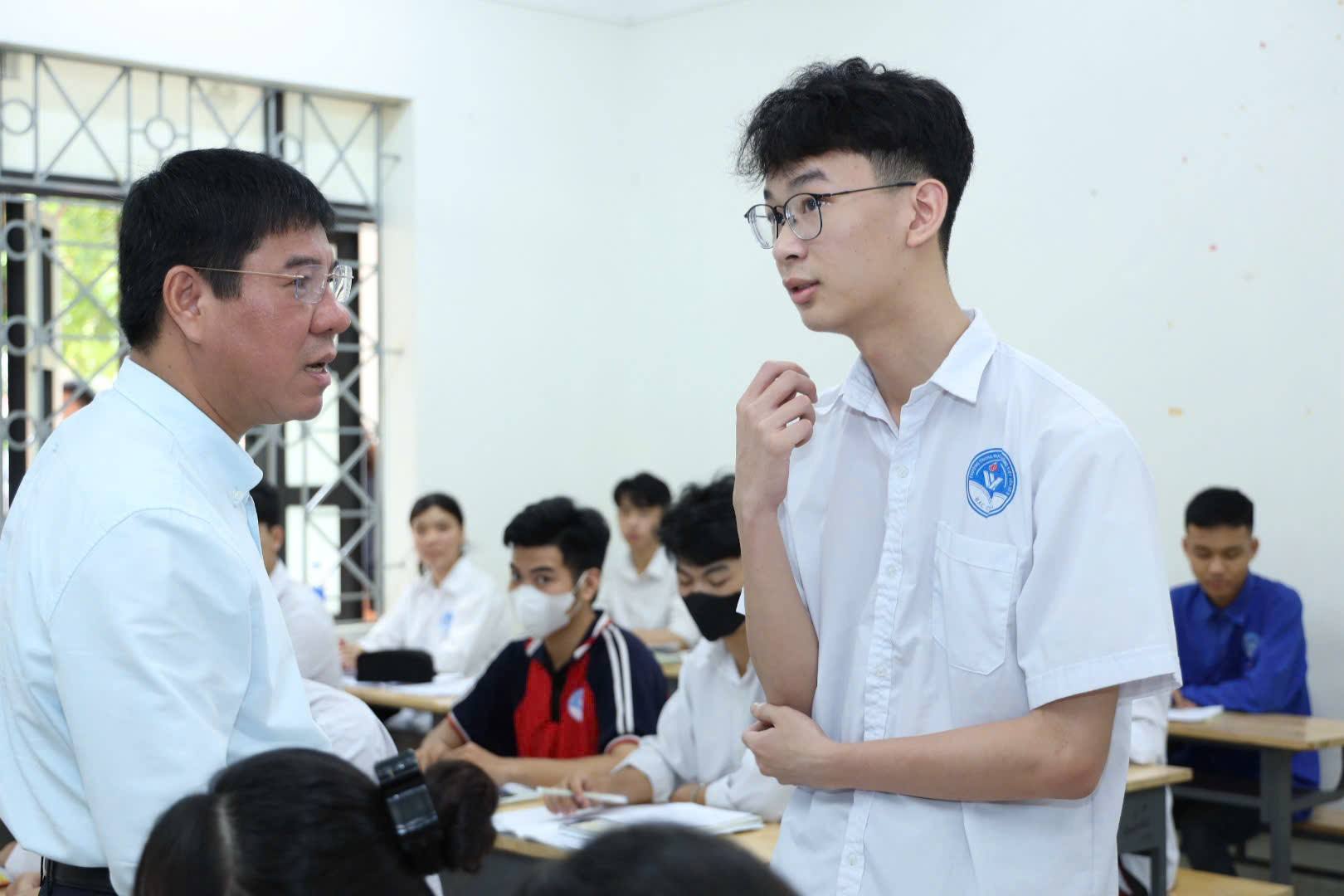 |
Professor Huynh Van Chuong encourages students in Bac Giang on 9/6. Photo: MOET |
Professor Huynh Van Chuong encourages students in Bac Giang on 9/6. Photo: MOET
This year's high school graduation exams will take place on 26-27/6, with over 1.16 million examinees, an increase of nearly 100,000 compared to last year. Nearly 1.14 million students will take the exam under the new (2018) general education program, and over 26,700 under the old (2006) program.
Nationwide, there are nearly 2,500 exam centers with over 50,000 exam rooms. Approximately 200,000 officials, teachers, staff, and other forces have been mobilized.
With exams being conducted under both the old and new programs, localities have focused on training exam proctors due to differing regulations. For instance, students under the new program are not allowed to bring Geography Atlases into the exam room, while those under the old program are. Also, the elective subjects under the new program will have 48 exam codes, instead of the previous 24.
Professor Huynh Van Chuong, Director of the Department of Quality Management, Ministry of Education and Training, after inspecting exam preparations in several localities, assessed that all provinces and cities are ready and have ensured all necessary facilities, human resources, and materials for a safe and serious examination process.
The exam will be held over three sessions, one less than before. On the first day, 26/6, students will take two compulsory subjects: Literature and Math. The following day will feature 9 elective subject exams. Students are arranged by subject to minimize movement.
This is also the first year the Ministry has transmitted exam questions to localities via the encrypted and secure channels of the Government Cipher Committee.
This new method allows for faster and more timely delivery of original exam papers, reducing the time and personnel required compared to traditional methods.
Several ministries and agencies are coordinating with the Ministry of Education and Training to organize the exam. The police force will ensure traffic safety and train exam proctors on detecting cheating using high-tech devices. The health sector will provide emergency support. The electricity sector has deployed personnel to ensure uninterrupted power supply during the exams. Officials and lecturers from universities, participating in exam supervision, also arrived in the localities yesterday.
Regarding the exam content, Professor Chuong stated that the general approach is to adhere closely to the curriculum but with differentiation to aid university admissions. The Literature exam will include materials beyond the textbooks, and students will not be required to memorize specific texts or learn from model essays.
The Ministry representative advised students to maintain their health and avoid pressure and stress. "Your task is to focus on the exam and achieve the best possible results," Professor Chuong said.
Duong Tam





